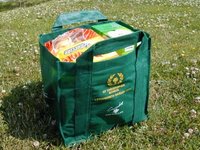One key emerging trend seems to be the increasing polarisation of
 the planet, at least as far as opinion goes. No longer is there a generally held belief about many things. Instead we have the mass-polarisation of opinion. Expressions such as "if you're not part of the solution, you're part of the problem" or "you're either with us or you're against us" evoke flashbacks to the days of McCarthyism in the USA as ordinary people were brainwashed with talk of reds under their beds. In the last 15 years in my view, roughly co-inciding with the emergence of the internet as a generally available information channel, more and more of this polarisation has occurred.
the planet, at least as far as opinion goes. No longer is there a generally held belief about many things. Instead we have the mass-polarisation of opinion. Expressions such as "if you're not part of the solution, you're part of the problem" or "you're either with us or you're against us" evoke flashbacks to the days of McCarthyism in the USA as ordinary people were brainwashed with talk of reds under their beds. In the last 15 years in my view, roughly co-inciding with the emergence of the internet as a generally available information channel, more and more of this polarisation has occurred.No longer can we see something presented as true and fair when everything can be accused of being subjective and tainted by self-interest of those comissioning the article or the news item.
Let me give some recent examples.

A diet rich in fish oils is good for a healthy heart. This was the generally announced outcome of research into the benefits of omega-3, a component found in fish oils which in turn are found in diets containing lots of fish. Suddenly you can't move for all the fish-oil and omega-3 being inserted into our food. I've seen it in vitamin supplements, margarine and most recently in milk. All well and good until you read that a dispute has arisen about whether this is in fact really true at all. There is now divided opinion about whether omega-3 and fish oils really do offer the benefits that have been suggested. It seems that in at least one study the reverse was found and increased incidence of cardiac problems occurred. So what are we now to think about fish oils?
Here's another. In Ireland a plastic bag tax was levvied some years ago to decrease the environmental impact of plastic bags
 , most of which were not bio-degradeable. They go into the ground and sit there for years and years polluting and destroying we are told. In their place consumers are requested to use eco-friendly bags, made of cloth or paper, thus improving the country and lowering the impact on the environmentof these cursed plastic bags. But is this the absolute truth? Has the environment benefited from the reduction in the use of plastic bags? It would seem not. Again a recent study suggests that the extra weight of paper and cloth bags, multiplied by the sheer number of these in use (go ahead and do an inventory of just how many bags you have in your own home) and this in turn has meant extra freight costs which of course means more emissions pumped out of big freight containers as they shuffle along the motorway bringing bigger bags to the stores. Again this is a point of view and clearly a directly opposing view to those who suggest the plastic must go.
, most of which were not bio-degradeable. They go into the ground and sit there for years and years polluting and destroying we are told. In their place consumers are requested to use eco-friendly bags, made of cloth or paper, thus improving the country and lowering the impact on the environmentof these cursed plastic bags. But is this the absolute truth? Has the environment benefited from the reduction in the use of plastic bags? It would seem not. Again a recent study suggests that the extra weight of paper and cloth bags, multiplied by the sheer number of these in use (go ahead and do an inventory of just how many bags you have in your own home) and this in turn has meant extra freight costs which of course means more emissions pumped out of big freight containers as they shuffle along the motorway bringing bigger bags to the stores. Again this is a point of view and clearly a directly opposing view to those who suggest the plastic must go.
I remember being told several years ago that I needed to cut back on drinking coffee, something about it being dangerous to drink too much of the stuff. Well we seem to have a polar opposite view on that too, with some saying that a little is good for you and others yet saying that you can drink all you like and to hell with the naysayers. Hard to know where to stand on this one too.
Maybe one of the best examples was the suggestion that
 eggs are bad for you in large doses due to their high cholesterol levels. Too many eggs consumed leads to high cholesterol leading to heart and blood pressure problems. Or so we were told. It now seems that more recent research suggests that eggs by their design have a component that negates much of the cholesterol, essentially inhibiting the human body from taking on the cholesterol we were worrying about. I think this too represents a polar opposite opinion. Once again I am flummoxed about where to stand on this.
eggs are bad for you in large doses due to their high cholesterol levels. Too many eggs consumed leads to high cholesterol leading to heart and blood pressure problems. Or so we were told. It now seems that more recent research suggests that eggs by their design have a component that negates much of the cholesterol, essentially inhibiting the human body from taking on the cholesterol we were worrying about. I think this too represents a polar opposite opinion. Once again I am flummoxed about where to stand on this.I haven't even ventured to talk about news media, sports broadcasting and stuff like that because clearly there is a polarisation of viewpoint going on there too.
Van Morrison was on the news a couple of weeks ago railing against the internet. His assertion was that in days past people used to study something in great detail before they would be considered an expert on something. Nowadays, he complains, people just look stuff up on the internet and claim to be expert. I'm not saying I agree or disagree with his view but clearly when looking something up on the internet you need to recognise if what you are reading is based on one extreme pole of opinion or the other extreme, or hopefully somewhere thankfully between the extremes of modern viewpoint.
p.s. you'll notice I like to use Wikipedia as a reference. Another example of extreme polarisation as others assert that Wikipedia is not reliable. This is getting a bit old.
No comments:
Post a Comment